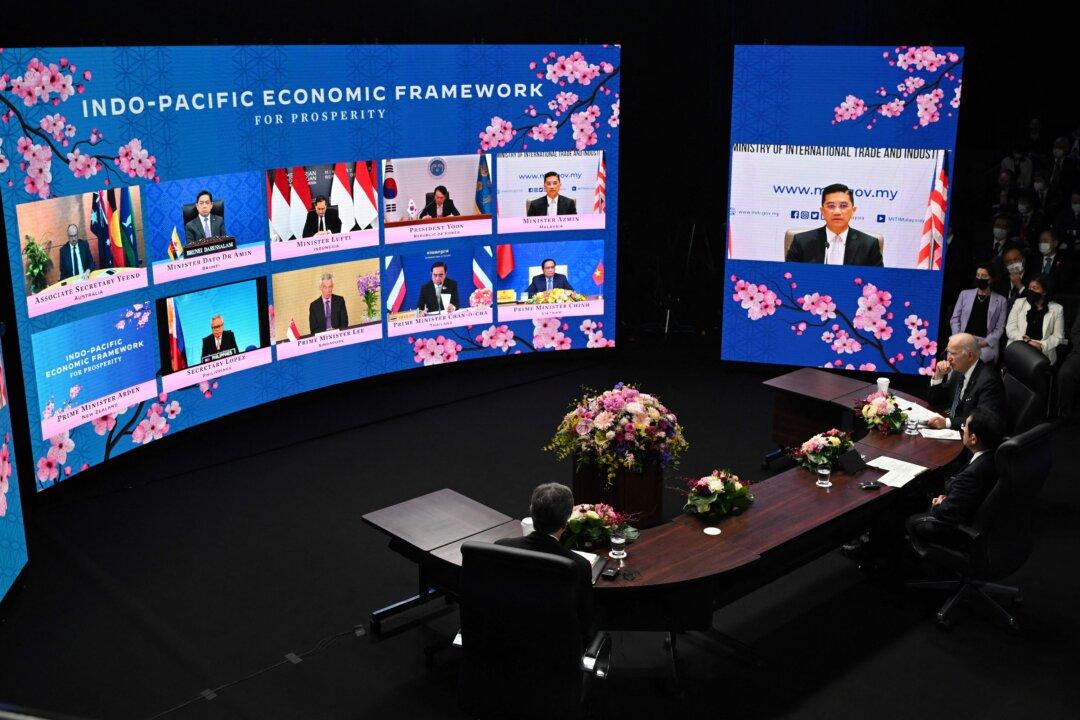The United States needs to improve its relationship with allies and partners to adequately compete with China in the Indo-Pacific, according to one congressmember.
“We need to be doing a better job, in my opinion, on our alliances and relationships in Asia in the [Indo-Pacific] area,” Rep. Chrissy Houlahan (D-Pa.) said during a conversation at the Hudson Institute, a conservative think tank.




